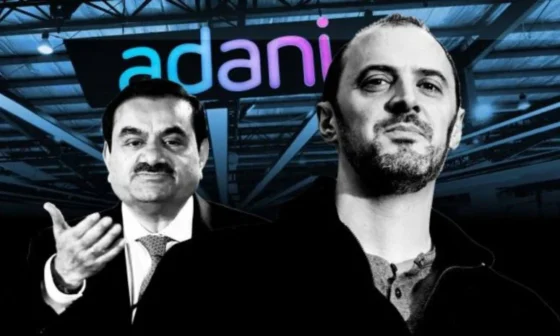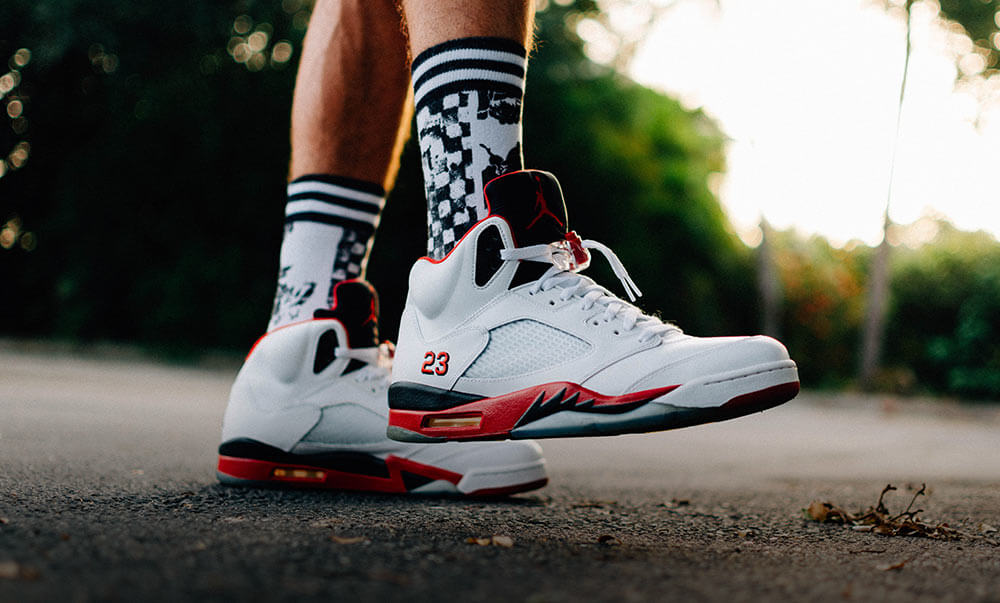|
Powered by AltAlpha AI
|
Introduction
In alignment with the ever-evolving societal structure holding corporate entities as the new core elements for value addition, humans raise questions, enhance desires, develop & flourish the ability of fulfillment, disagree, compromise, and seek solutions for maximizing utility & satisfaction. The foundational blemish is well highlighted when we perceive vision as reality, rather than a dynamic blend of reflection, perception & dimension, wherein humans are isolated in the mutually agreed deceptive rattrap with the belief about the reflective vision that what the politically and corporately concentrated media shows is what it is.
The perpetual obsession with controlling the voices of the media by corporate bodies continues, and unironically, Adani Enterprises Limited (AEL) announced a hostile takeover bid of 29.18% stake in New Delhi Television Ltd. (NDTV), India’s most credible media house & the only critical mainstream channel reasonably evaluative of the ruling government, by a wholly-owned subsidiary company namely AMNL (AMG Media Networks Limited). VCPL (Vishvapradhan Commercial Private Limited), a subsidiary of AMNL, executed its option to convert 1,990,000 warrants into 1,990,000 equity shares of RRPRH, accounting for 99.50% of RRPRH’s equity securities on the contractual foundation of an unsecured loan of the year 2009.
Majority control of AMNL over the ‘Fourth Estate’
This acquisition’s only foreseeable positive aspect is that the political command might agree to a capitalism bridled dialogue with the channel after assuming power in 2014. Paramountly, India’s 2022 World Press Freedom Index position has plummeted to 150 out of 180 nations, following the latest report issued by Reporters Without Borders (RSF), owing to the spectacular rapprochement between the Hindu nationalist & the prominent families dominating the media by exploiting regulatory flaws. Within the veil of ‘anti-national’ approaches, the State, in the quest for political power, always has & will constantly attempt to control by way of changes in ownership, financial and regulatory pressure, and negative publicity of reputable journalists.
In a society filled with diversities and disagreements, the ‘Fourth Estate’ of the state has to be protected from an undue concentration of ownership to ensure plurality and diversity of opinion for the welfare of all. Establishing the foundation and, the legal configuration in India for friendly corporate mergers and acquisitions is governed by Section 230-240 of the Companies Act 2013 (CA2013), Section 3-6 of the Competition Act 2002, read with SEBI (Substantial Acquisition of Shares and Takeovers) Regulations, 2011. In alignment with the dipping investigative journalism, the AMNL aspires to gain majority control by making an open offer for a 26% stake from the public, in accordance with Regulation 3 of the Takeover Regulations, the hostile acquirer must make a public offer after acquiring 25% of the target’s voting rights under Regulation 4. With this well-woven conspiracy exploiting the legislative loopholes turning into reality, the Adani Group will control 55% of the only free media holding prime significance in an arena relying on traditional television sources, pushing out valuable television journalists Radhika & Prannoy Roy – the promoters holding 32% stake in NDTV.
Press freedom as the foundation of a democratic structure against political & corporate dominance – Constitutionality & International Standards
“Were it left to me to decide whether we should have a government without newspapers, or newspapers without a government, I should not hesitate to prefer the latter.” Freedom of speech can be considered as the core & constitutive feature of justice, constituting active citizenship by blending diversified perspectives and it has been guaranteed under Article 19 of the Indian Constitution with reasonable restrictions in Clause (2) of the article and this right has been constantly reiterated by the Indian Courts and further highlighted such freedom to be the foundation of the democratic structure. The media plays a dominant role in defining notional public perception, and editing the public sphere and fueling extremism from every end kills the idea of reasonableness, rational opinion, and free choice manipulating the social dilemmas in the favor of the dominating power, whether righteous or not is a dynamic question of disagreement.
In the international realm, Article 19 of the Universal Declaration of Human Rights (UDHR) safeguards the right to freedom of expression which has been granted legal authority as International Customary Law and the International Covenant on Civil and Political Rights (ICCPR) provides formal legal immunity for free speech. The multi-dimensional right also preserves the right of the listener to ‘seek and receive’, which excludes arbitrary state or corporate interferences that prohibit individuals from accessing news that others desire to share with them. There is an inherent existence of a positive obligation on the State to ensure diversity and pluralism from every political, social, and cultural group. In further constitutional interpretation, the apex court in Romesh Thappar v. the State of Madras declared the inclusion of freedom of the press in Article 19 as it constitutes the foundation of democracy. In the constitutional interpretation, the acts of undue concentration of media ownership by a such hostile takeover by the Adani Group lucidly violate the Constitution, International standards, and the Rule of Law.
The hostile takeover of NDTV from the prism of the established Law
In stark response to the AEL media release, NDTV declared by a statement that a 29% stake was acquired without consent, discussion, or notice making this a hostile acquisition. Unquestionably, the legitimacy of the takeover can be determined primarily on the basis of terms of the contractual agreement of the unsecured loan in 2009, which will aid in determining whether the warrants were convertible solely at the discretion of VCPL or discussion/notice/consent of RRPRH was required. Adding to the essence, the transfer of shares to VCPL didn’t take place as NDTV claims that SEBI approval is necessary for the acquirer because of the order in Prannoy Roy AAHPR6037K and Others in the WTM, SEBI, wherein, Prannoy & Radhika Roy were restrained from accessing securities market directly or indirectly till 26 November 2022 (2 Years). Expanding the prism of the legal issue, whether the transfer of RRPRH shares would be directed towards the indirect dealing of Roys or not become a substantive question of law.
Within the established legal framework, the hostile nature of the acquisition doesn’t exempt it from complying with the regulatory framework under the Competition Act and since the Adani Group, as per the annual report of the FY 2021-2022, holds assets worth 21,651.88 Crores – falling in the ambit of combinations defined in Section 5 (a)(ii)(A) of the Competition Act, which triggers Section 5 & 6 of the Act mandating AEL to apply for the open offer’s permission from the Competition Commission of India (CCI).
Tackling undue media concentration by ownership in the dimensions of the Companies Act, Competition Act, and SEBI Regulations
Lucidly substantiated from the acts as well as the statements, NDTV & its shareholders hold the prime interest in quality investigative journalism by the delivery of honest, unbiased, and fearless news. The media concentration by taking over ownership & establishing control impacts the twin ideas of press freedom & quality journalism, which itself empowers the roots of NDTV’s existence. Whilst there is a mandate for CCI approval, in the interest of Justice & Equity, RRPRH may decline to register the acquisition of securities for “sufficient cause” under section 58(4) of CA2013, wherein, the transfer is being carried out under Section 58(2) of the Act. The literal interpretation of “sufficient cause” is not furnished within the CA2013, but the Supreme Court in Mackintosh Burn Limited v. Sarkar and Chowdhury Enterprises Private Limited expanded the horizon & provided that refusal of registration can be granted in violation of any law or matters conflicting the interests of the company. In application, registration of the hostile acquisition by the Adani Group, along with the grounds mentioned hereinabove, can also be denied owing to the malafide intent of media concentration as furnished in Tracstar Investments v. Gordon Woodroffe, provided that the Group allegedly has strong allies with the ruling party.
Every law is a mirror to the society and for the wholesome interpretation, legislative history and intent play a fundamental role, and making the note of the Companies Act 1956 becomes appurtenant, wherein Section 111A (2) included “sufficient cause” and furthermore, Section 111A(3) provides a definitive list which included violation of SEBI guidelines or any other law in force as a valid ground for refusal in Clause (i) & (iii) respectively. Alongside, it was established in Bajaj Auto Ltd. v. NK Firodia that the directors hold the discretion while acting in good faith as well as in the interests of the company.
Ascertaining the legal principle to the question in hand, there is a dire need for the regulation of such hostile takeovers, at least for the press, to avoid compounding negative effects. Herein, firstly, as per the principle in Indian Express Newspapers v/s Union of India, the Judiciary has a responsibility to preserve press freedom and invalidate any laws or government actions that restrict it. In due obedience to the Constitutional protections under Article 19 in the doctrinal eclipse, the hostile takeover prima facie undervalues the Part III of the Constitution by indirectly controlling every media house & shaping the mass perspective in a self-serving manner as outlined in Keshavan Menon v. the State of Bombay. This form of unconsented acquisition is violative of the Constitutional freedoms based on the doctrine of severability interpretation and consequently, stands in violation of the law in force. Secondly, the acquisition can be perceived in conflict with the interests of the shareholders and the company, as the foundational aspect of ‘unbiased, honest, fearless and investigative’ journalism is being compromised. While acting in good faith, the discretionary powers of the directors for refusal can be exercised as there are “sufficient causes”.
Protection of diversity & plurality from political and corporate powers
The State has the obligation to prevent such undue media concentration from private powers to protect the democratic machinery with diversity and plurality of voices. Though, the state is striving towards ease of doing business and following which, Regulation 5(8) and Regulation 9(2) of the Competition Commission of India (Procedure in regard to the transaction of
business relating to combinations) Regulations, 2011 eased the mandates for hostile takeovers but that doesn’t imply that such severe violations of Constitutional law could be condoned.
Failing the two-fold resort, AEL must comply with CCI notification guidelines within 30 days as the jurisdictional thresholds under Section 5 of the Competition Act 2002 are met and is also not covered within the “Small Target Exemption”, following which, the takeover will be subject to a ‘reasonable & perspective’ review within 210 days, positively. Integrating reflection on how compounding effects the transaction would leave, Phase II investigation has to be initiated as the facts crystalize prima facie that the hostile acquisition will cause an appreciable adverse effect on competition (AAEC) in the business environment as well as on the democratic civilization. On the premise fulfillment of factors under Section 20(4) of clauses such as “(g) extent to which substitutes are available or are likely to be available in the market;” herein the acquirer will control the ‘only’ free and democratic media house for advantage and “(j) nature and extent of vertical integration in the market;” herein, the media house in question has been constantly interrogating political ties and business deficiencies and with this hostility, the only stone will be transformed into a stepping stone for influencing business as well as agenda expansion. In obedience to Section 19(4) of the Competition Act, the commission examining the economic power of AEL and the vertical integration of the widespread business should initiate a Phase II investigation inviting public comments and objections revolving around the impact of the transaction, by the way of Form IV. On the comprehensive evaluation of the legal & logical dimensions highlighted hereinabove, under Section 31, CCI can either disapprove the hostile takeover or approve with modifications that:
a. AEL should not appoint a director or key managerial persons and exercise absolute control over NDTV. (As in the instance of Tata Sons and GMR, Combination Registration No C-2019/07/676)
b. Independence of the operations of NDTV has to be maintained and sensitive information can be secured by NDTV in the interests of the company. (As in the instance of Northern TK and Fortis Healthcare, Combination Registration No C-2018/09/601)
c. Any other modifications in the interests of the shareholders, competition environment, society & justice, with due consideration to the public comments and objections.
Unquestionably, the substantive question holds primary reliance on the interpretation & discretion of the courts, but owing to lack of legislative reformation, the malafide intents resulting in undue media concentration by corporate ownership cannot be Justified in the eyes of law and thereby, a wider interpretation to “sufficient cause” from Section 58(4) is must until the legal setup incorporates recommendations furnished below or any other changes in the similar lines for restricting such unhealthy hostile takeover. Additionally, though unlikely, the CCI can deny approval for an open offer under the Competition Act as Reliance also acquired 4 media entities merging to Network18 (Allegedly, the MD of RIL also shares strong ties with the ruling government) and also, the SEBI holds the power to deny approval as the Roys have been forbidden to access the securities market.
Recommendations/Concluding remarks
To protect the idea of free speech & expression, press freedom, a good conscience, and democracy in its dimensions and dynamicity, the essentials of the machinery need to be protected from undue media concentration by the way of hostile corporate acquisition/ownership to ensure diversity, plurality and the foundations of the Constitution. Media plays a concrete role in designing the public perception and any unreasonable control over such voices is the first step towards extremist social notions & autocratic governance quashing the idea of ‘welfare of all’. Thereby, for the time being, a wider interpretation of “sufficient cause” in Section 58(4) of CA2013 should be given as the takeover stands in violation of the law as well as detrimental to the interests of the company. Within the established framework of the anti-trust laws in the Indian realm, there exists no provision for ‘oral’ public comments or objections, which affects the integrity & rationality of the proceedings, thereby, such enactment should be introduced. Owing to the cracks & gaps in the legislation, there is a need for an updating of law that governs such hostile takeovers in some markets. Additionally, regulation of media ownership by new specific legislation has to be done in two dimensions – Quantitative & Qualitative. For quantitative measures, control on the percentage of holding of stake by the corporate & political bodies in the media can be exercised & for qualitative measures, an independent regulatory body can be established for the protection of press freedom against undue concentration of the protection of freedom of expression, welfare, and growth of all.






